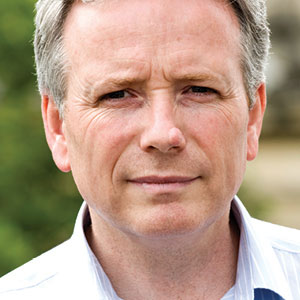Exclusive A rescue deal for general practice in Northern Ireland is at risk amid political turmoil that may trigger an election for a new Assembly.
Northern Ireland health minister Michelle O’Neill agreed to a package of measures on 23 December, according to NI GPC chair Dr Tom Black, who said it was ‘essentially the equivalent of the GP Forward View’ in England (which included pledges of a 14% increase in funding for general practice, reduced workload and a massive increase in workforce).
In a statement on the Department of Health website, Ms O’Neill said she had agreed to recommendations from a review of general practice in Northern Ireland published in March last year.
She added that the Government needed ’to take action now to address the challenges facing the [GP] service’ and that she would launch a review to ‘explore in more detail the way in which we provide GP services in the future’.
The GPC had previously called for the Government to invest 10% of the healthcare budget in general practice to avoid its ‘collapse’ but it is not known if this was expected to form part of the deal.
NI GPC was set to organise mass resignations of GP practices from the NHS if an agreement was not reached by the next GPC meeting on 25 January.
But the GPC said NHS resignations were now ‘more likely’, since if there is no Government there will be no budget and no means of agreeing funding for the plan and avert the action.
Following the resignation of her Sinn Fein party colleague Martin McGuinness as Deputy First Minister on Monday, Ms O’Neill has said they are not interested in talks to save the current coalition with the Democratic Unionist Party’s (DUP), according to the Belfast Telegraph.
Meanwhile, the BBC reported today that an election is ‘highly likely’.
Dr Black told Pulse: ‘We have a plan agreed with the health minister Michelle O’Neill – the GP-led Review Plan which is the equivalent of the GP Forward View. We expected this to be funded by the Department of Health after the budget.
‘The collapse of the Assembly means that there won’t be a budget in Northern Ireland so the GP plan won’t be funded and therefore GP resignations are now more likely. This is a nightmare for general practice in Northern Ireland and will completely undermine any rescue plan for the GP service for patients.’
The GP-led review, which the health minister said she had accepted, made a number of recommendations including increasing the number of GPs working in Northern Ireland via an EU recruitment campaign and incentives to encourage Northern Irish doctors back from working overseas.
The plan also recommended encouraging GP recruitment by placing a greater focus on general practice in undergraduate medical training.
On workload, the report recommended better access to other healthcare staff to support GPs, such as nurses and pharmacists, while on infrastructure it recommended investment in technology and ‘ringfenced recurrent resources to support improvement and upgrade of GP premises’.
Northern Ireland’s ‘plan B’
The GPC in Northern Ireland devised its ‘plan B’ to take GP practices out of the NHS after failing to get the Government to address issues facing general practice.
Since then, the GPC has received the backing of plan B from grassroots GPs in Northern Ireland, and 25 January was set as a deadline to reach a rescue deal with the Department of Health.
So what is the GPC’s plan B?
It is looking at the model in the Republic of Ireland, where there are two types of patients. The first is those with a medical card who are seen in general practice without charge – this is dependent on income and covers around 40% of the population. But those without a card pay a charge of €45 to €55 for each consultation.
Pulse October survey
Take our July 2025 survey to potentially win £1.000 worth of tokens












